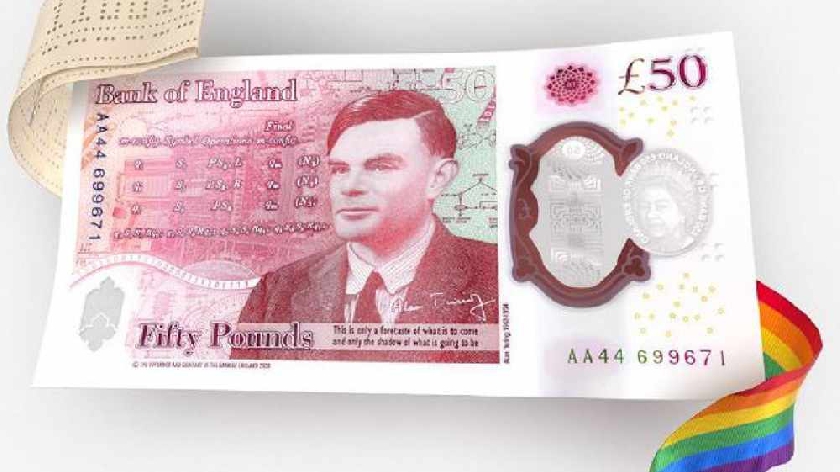
The brand new £50 note, which celebrates the achievements of Bletchley Park's codebreaker Alan Turing, has entered circulation today (23/6).
Its release coincides with what would have been Alan Turing's 109th birthday.
Alan Turing worked at the top-secret local site of Bletchley Park during World War II and helped Allied efforts to read German Naval messages enciphered with the Enigma machine.
His work, which also led to the development of early computers, is said to have shortened the war by two years and saved thousands of lives.
The new polymer £50 note, which was unveiled earlier this year by the Bank of England, features an image of the scientist, mathematical formulae that laid the groundwork of modern computer science, and technical drawings for the machines used to decipher the Enigma code.
Today on what would have been his 109th birthday, the @bankofengland’s new £50 note featuring Bletchley Park Codebreaker and computing pioneer Alan Turing enters circulation.
— Bletchley Park (@bletchleypark) June 23, 2021
Follow our #Turing50Takeover to learn more about this remarkable man. pic.twitter.com/HCNnZEbQSa
Speaking at Bletchley Park, Bank of England Governor Andrew Bailey said: "Our banknotes celebrate some of our country's most important historical figures.
"That's why I am delighted that Alan Turing features on the new polymer £50 note.
"Having undertaken remarkable codebreaking work here at Bletchley Park during the Second World War, he went on to pioneer work on early computers, as well as making some groundbreaking discoveries in the field of developmental biology.
"He was also gay and was treated appallingly as a result. Placing him on this new banknote is a recognition of his contributions to our society, and a celebration of his remarkable life."
Alan Turing was convicted of "gross indecency" in 1952 after having a relationship with a man.
He was later sentenced to 12 months of hormone "therapy" but the conviction also meant he could never again work for GCHQ, aka Bletchley Park.
An inquest attributed his 1954 death to suicide. And in 2019, the Queen granted him a royal pardon.















